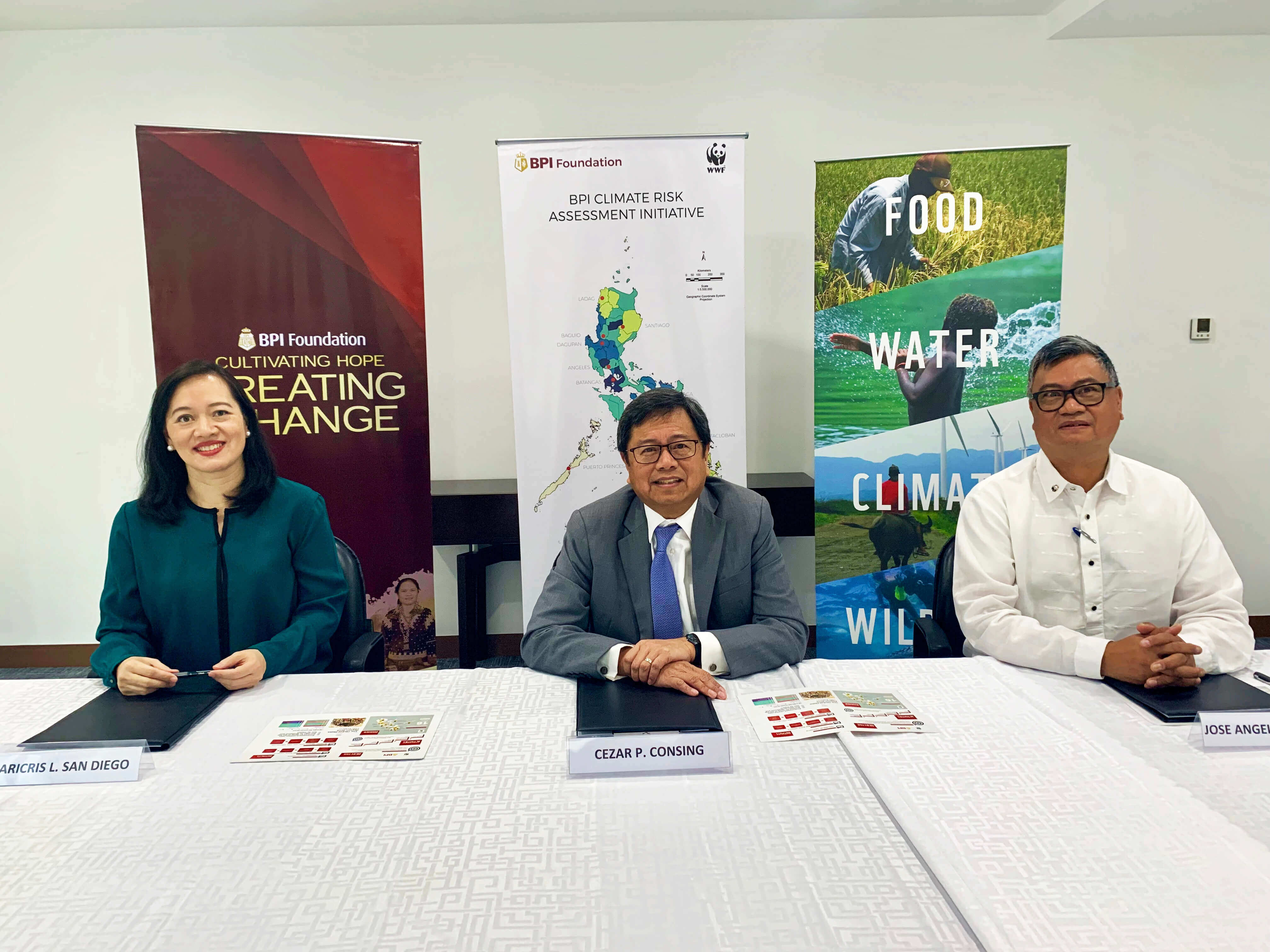16 key cities to receive climate change risk assessment from WWF and BPI Foundation partnership
By: The Good News Pilipinas Team
|
Published on: August 19, 2019

16 more key cities will be added to the 16 cities in the study about climate change risks in the Philippines. Credits to WWF-Philippines.
Another batch of 16 key cities in the Philippines will undergo climate change risk assessment to help pool information that communities can use to prevent environmental disaster.
The study will be conducted by the World Wide Fund for Nature (WWF) – Philippines in partnership with Bank of the Philippine Islands (BPI) Foundation, the social innovation arm of the country’s first bank.
A BPI release sent to Good News Pilipinas reports that the new agreement between BPI Foundation and WWF is part of the fifth phase of the climate change risk assessment project initiated by the two organizations in 2011.
Sixteen new cities across the country will be covered in the new study about socio-economic and climate vulnerability information of cities, along with updates on the first 16 cities covered in the previous study conducted from 2011 to 2014.
During the first four phases conducted from 2011 to 2014, the project assessed the following 16 cities, namely, Baguio, Cebu, Davao, Iloilo, Cagayan de Oro, Dagupan, Laoag, Zamboanga, Angeles, Batangas, Naga, Tacloban, Butuan, General Santos, Puerto Princesa, and Santiago.

BPI Foundation seals partnership with WWF-Philippines to help assess the risks associated with climate change in vulnerable cities in the Philippines. From left: BPI Foundation Executive Director Maricris San Diego, BPI President and CEO Cezar Consing, and WWF-Philippines President and CEO Jose Angelito Palma. Credits to BPI.
BPI Foundation Executive Director Maricris San Diego said the foundation will be working jointly with WWF-Philippines to help identify vulnerable cities that can benefit from projects that contribute to the achievement of Sustainable Development Goals (SDGs).
“Assessing climate change vulnerability in localities will allow community-level interventions and help us identify potential physical risks of climate change to people and businesses in the identified areas. This will also help BPI in managing its own risks, especially risks associated with assets and loans,” said the BPI Foundation official.
“As climate change compromises the long-term competitiveness and economic viability of Philippine cities, the initiative will also solve the gap in the availability of risk analysis, which is crucial in making practical and site-relevant business risk management decisions,” San Diego added.
Updating of the previously assessed cities began in July, while the assessment of four new cities and the preparation of the Climate Risk Toolkit, which determines the bank’s exposure, will continue towards June 2020.
Aiming to contribute to the SDGs and help create a better Philippines, BPI Foundation has been working towards improving the social and economic well-being of Filipinos through education, entrepreneurship, and environmental sustainability.
TELL US in the comments below your ideas on how to address climate change in your community.
Like, Follow, Subscribe to GoodNewsPilipinas.com Facebook, Twitter, Instagram, Good News Pilipinas! TV on YouTube, new story notifications and e-mail newsletters for updates on more Filipino Pride stories.